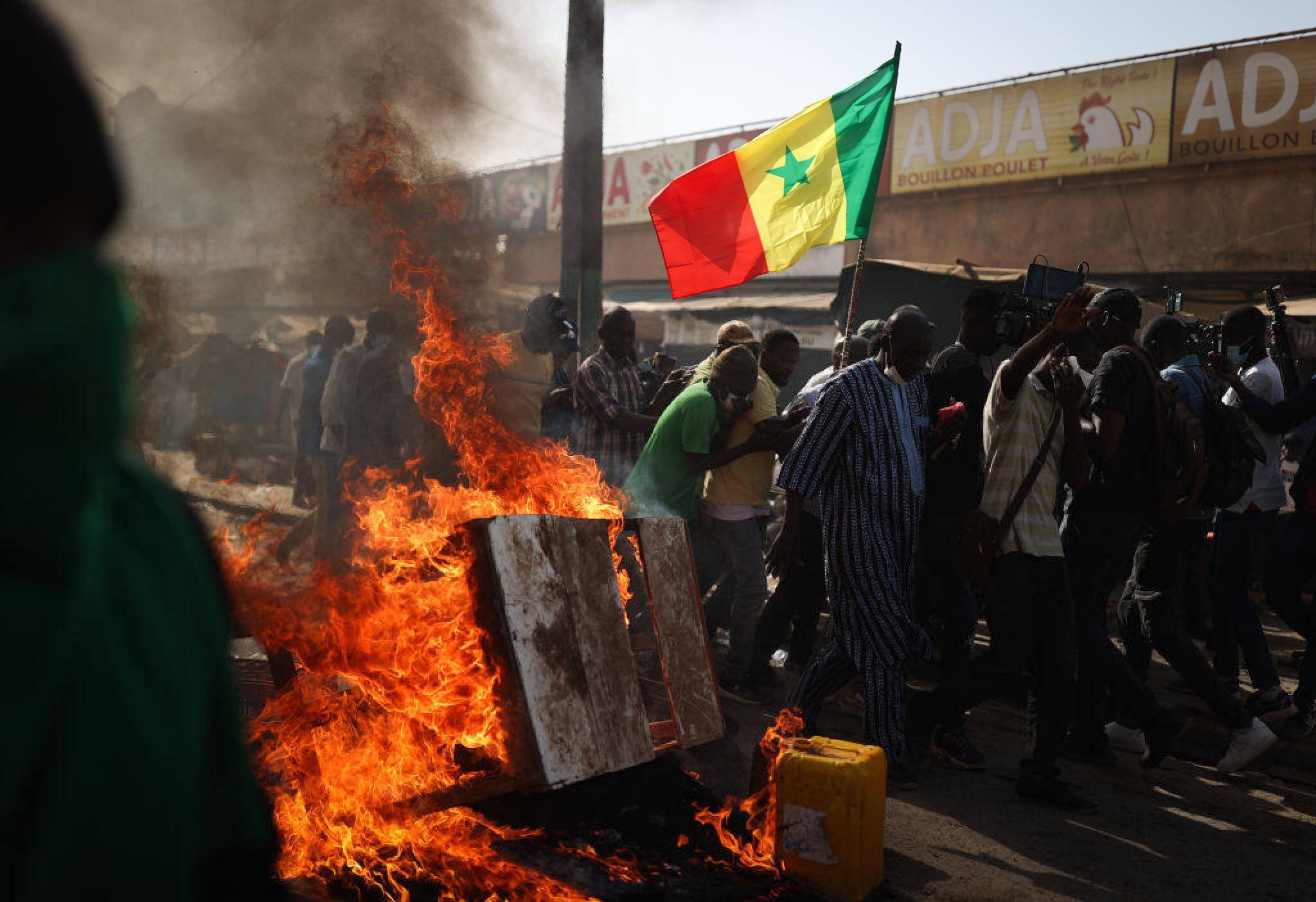On a day marked by discord and confrontation, the legislative assembly of Senegal took a pivotal decision to postpone the presidential election to December 15. This decision emerged from a session fraught with tension, where opposition lawmakers were removed by force for opposing President Macky Sall’s proposal to delay the election, initially slated for February 25. This extension of the election date effectively lengthens President Sall’s term, which was due to conclude on April 2, amidst significant public outcry and political unrest.
Escalating Tensions and Government Response
In response to the parliament’s decision, the government restricted mobile internet access, a move indicative of the growing unrest and the administration’s attempt to manage the dissemination of information. The streets of Dakar became a tableau of dissent as protesters, faced with tear gas from security forces, voiced their opposition to the delay. The government’s actions, including the arrest of numerous demonstrators, underscored the deepening divide between the state and its citizens.
Legal Counteractions and the Democratic Impasse
The political landscape further complicated when two opposition entities challenged the election’s postponement through legal petitions. This maneuver highlighted the intricate web of legal and constitutional challenges facing Senegal, a nation previously lauded for its democratic stability in a region plagued by political upheavals.
The African Union’s Standpoint and Civil Discontent
The African Union’s appeal for the expedited organization of the election reflects the broader international concern over the erosion of democratic norms in Senegal. Opposition voices, galvanized by activists like Guy Marius Sagna, have vehemently opposed what they perceive as an attempt to undermine constitutional order, urging the populace to reclaim their democratic rights.
Media Suppression and Rights Violations
The crackdown on media freedom, exemplified by the suspension of Walf TV’s broadcasting rights and the curtailment of mobile internet, has raised significant concerns about the state of press freedom and the right to free expression in Senegal. These actions, framed by the government as necessary for public order, have drawn criticism from human rights organizations and the international community, pointing to a worrying trend of government overreach.
The Backdrop of Political Tension
The context of this political upheaval is a year marred by rising tensions, with the disqualification of opposition leaders from the presidential race signaling a troubling shift towards authoritarian practices. The detention of presidential candidate Anta Babacar Ngom, amid widespread protests, has become a focal point of public discontent, highlighting concerns over the erosion of democratic values and the potential for political manipulation.
Social Media as a Platform for Dissent
The role of social media in amplifying public dissent has been significant, with hashtags like #FreeNgom and #SenegalDemocracyNow becoming symbols of resistance against the government’s actions. This digital mobilization reflects a broader global trend where social platforms serve as critical spaces for political engagement and advocacy.
International Perspective and the Call for Resolution
The international community’s watchful eye on Senegal underscores the importance of this moment not just for Senegal but for the stability and future of democracy across Africa. The situation in Senegal has sparked a conversation about the resilience of democratic institutions and the essential role of civic engagement in safeguarding democratic norms.
Reflections on Democracy and Civic Engagement
As Senegal navigates through this period of political uncertainty, the commitment of its citizens to democratic principles stands as a testament to the enduring value of civic participation. The unfolding events in Senegal serve not only as a challenge to its democracy but also as a reminder of the vigilance required to maintain democratic integrity in the face of political adversity.
The Road Ahead: Implications for Senegal and Beyond
The crisis in Senegal presents a critical moment for reflection on the state of democracy in the region. It raises fundamental questions about the balance of power, the role of civil society, and the mechanisms available for resolving political disputes. As Senegal seeks a path forward, the international community’s role in supporting a democratic resolution becomes increasingly vital.
The resolution of this crisis will have far-reaching implications for the political landscape in Senegal and potentially set a precedent for democratic governance in the region. The resilience and engagement of the Senegalese people, coupled with a commitment to dialogue and peaceful resolution, may yet navigate Senegal through this tumultuous period towards a more inclusive and transparent political process.
In facing these challenges, Senegal is not only determining its own future but also contributing to the broader narrative of democracy in Africa. The outcome of this political impasse will likely resonate beyond its borders, influencing perceptions of democratic resilience and the capacity for peaceful resolution of political conflicts across the continent.
As this situation evolves, the eyes of the world remain fixed on Senegal, awaiting the next chapter in its democratic journey. The steadfastness with which its people and leaders address these challenges will shape the narrative of democracy in Africa for years to come, underscoring the importance of upholding democratic principles in the face of adversity.

















